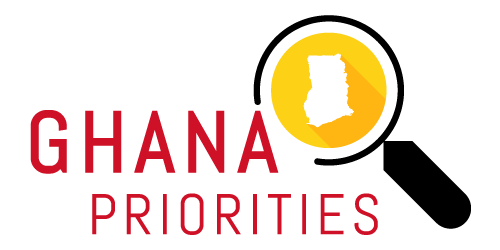Methodology
Methodology
Ghana Priorities is a research and advocacy project that analyzes and promotes investments to establish how to achieve the most social, environmental and economic good for Ghana with cedi spent.
Ghana Priorities uses the Copenhagen Consensus Center approach, refined over the past ten years to improve global and national spending priorities.
This project involves hundreds of sector experts, many months of research, and engagement with decision-makers on the most incisive development approaches for Ghana.
Sourcing Ideas and Solutions
Phase 1
Initial consultations with 10 Ghanaian “sector experts” across areas aligned to 17 SDG goals in March 2019 yielded a long list of more than 400 interventions for potential further research.
Additional consultations with other experts and ministries in Ghana could expand this list.
In April 2019 we initiated research on policy interventions that are self-evidently important, consisting of the interventions which most informed policy specialists, decision-makers, CSOs and politicians would agree address some of the most important challenges in Ghana’s current development landscape and/or are likely to be effective uses of Ghana’s limited resources.
These "self-evident" interventions were confirmed by members of the Ghana Priorities reference group, and the following criteria were used to identify them :
- Multiple “sector experts” identified the intervention as important, indicating high policy visibility;
- Comparisons against objective international benchmarks indicate that the intervention addresses a highly important development challenge in Ghana;
- Previous research, including Copenhagen Consensus exercises, indicates these interventions are likely to be effective uses of Ghana’s limited resources.
Phase 2
During 2019 further engaged with sector experts across Ghana through an additional series of sector expert consultations. The sector experts were comprised of individuals from the government, donors, academia, NGOs, and think tanks.
These consultations created a rare opportunity to extract an in-depth and nuanced overview of the challenges facing Ghana. These consultations resulted in hundreds of additional policy interventions on topics from health, education, and food security to clean water access, environmental preservation, climate change, and infrastructure. The ideas from these discussions added to a pool of research topics.
The proposed interventions were then shortlisted and reviewed by an academic advisory committee, who agreed on a final list of interventions to be researched and evaluated using cost-benefit analysis.
Conducting Economic Research
Top economists from Ghana and around the world were commissioned to undertake cost-benefit analysis on the shortlist of interventions. Assumptions were standardized to allow for comparison between different interventions.
Researchers used the standard and most recent data sets in the respective areas/themes for the analysis; Census, NSSO, National Family Health Survey, Reports and other data sets compiled by various Union Ministries, State Government Departments and associated agencies.
Feedback and peer review was embedded into the research process, to capture a broad range of expert perspectives. There was a rigorous academic peer review process, and first draft papers were also shared with sector and policy experts for their input.
The feedback was then incorporated into the final cost-benefit papers. Sector experts were then invited to provide commentaries alongside the final papers.
All papers and comments are publicly available on our website.
Assessing the Smartest Interventions
An eminent panel of seven distinguished economists met in Accra to evaluate more than 1000 pages of research across all sectors of government.
The panel included Finance Minister Mr. Ken Ofori-Atta, Planning Minister Prof. George Gyan-Baffour, former Finance Minister Prof. Kwesi Botchwey, Prof. Augustin Fosu from the University of Ghana, Prof. Ernest Aryeetey, Secretary-General of the African Research Universities Alliance, Prof. Eugenia Amporfu from KNUST, and the Nobel Laureate economist, Prof. Finn Kydland.
They then ranked all of the interventions and established what would do the most good for every cedi spent.

